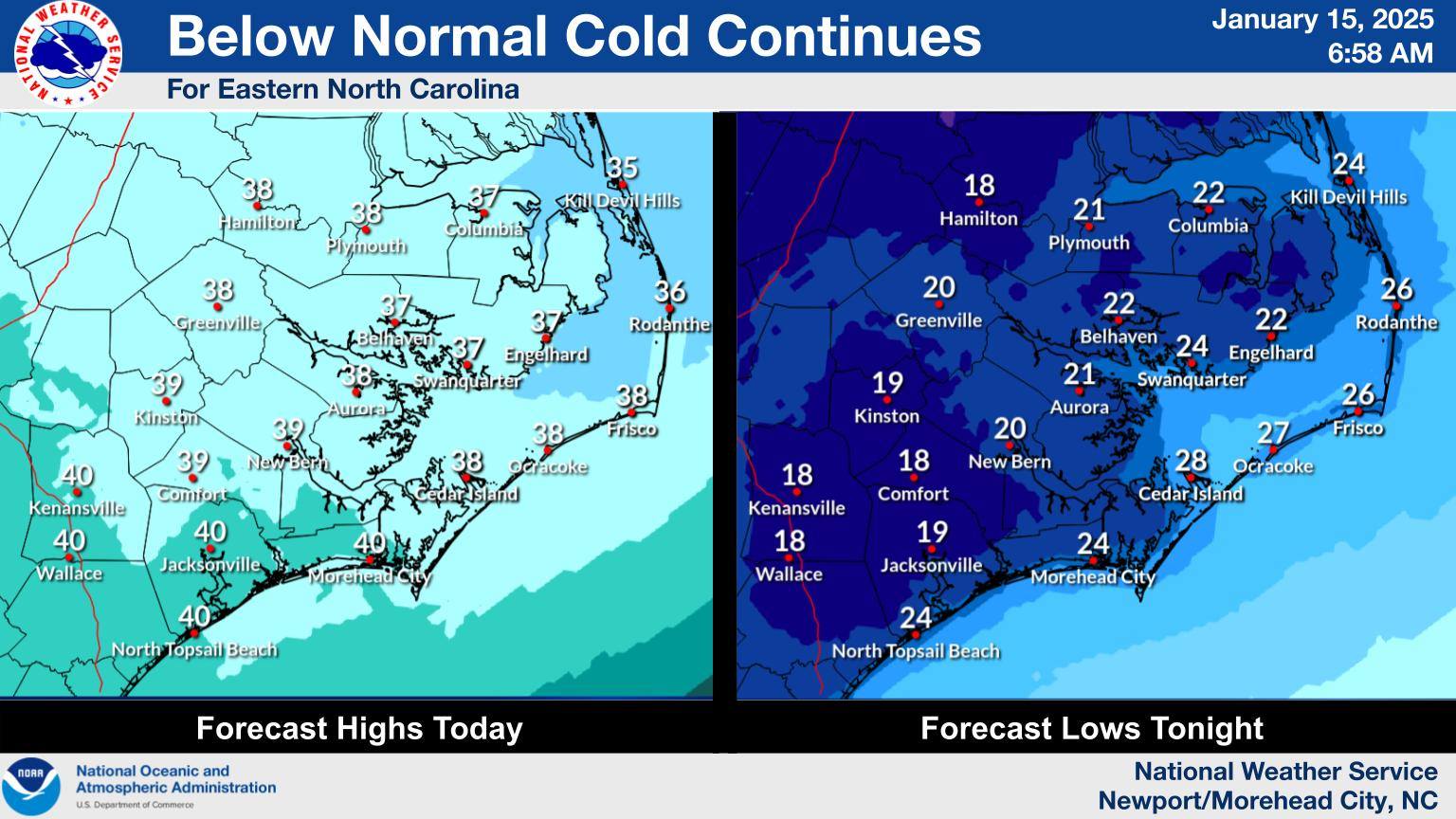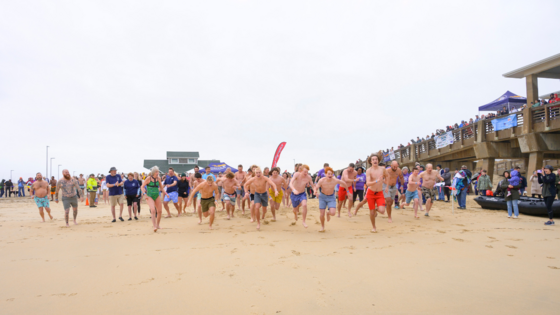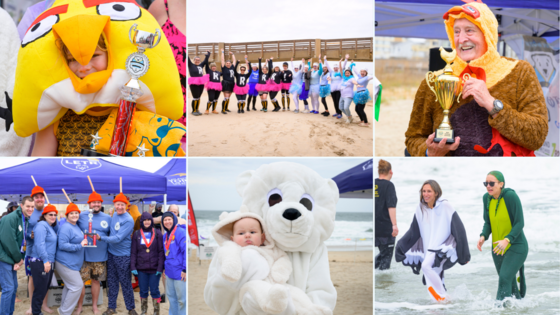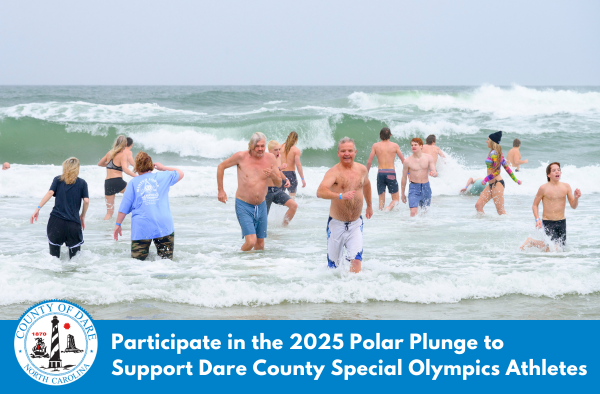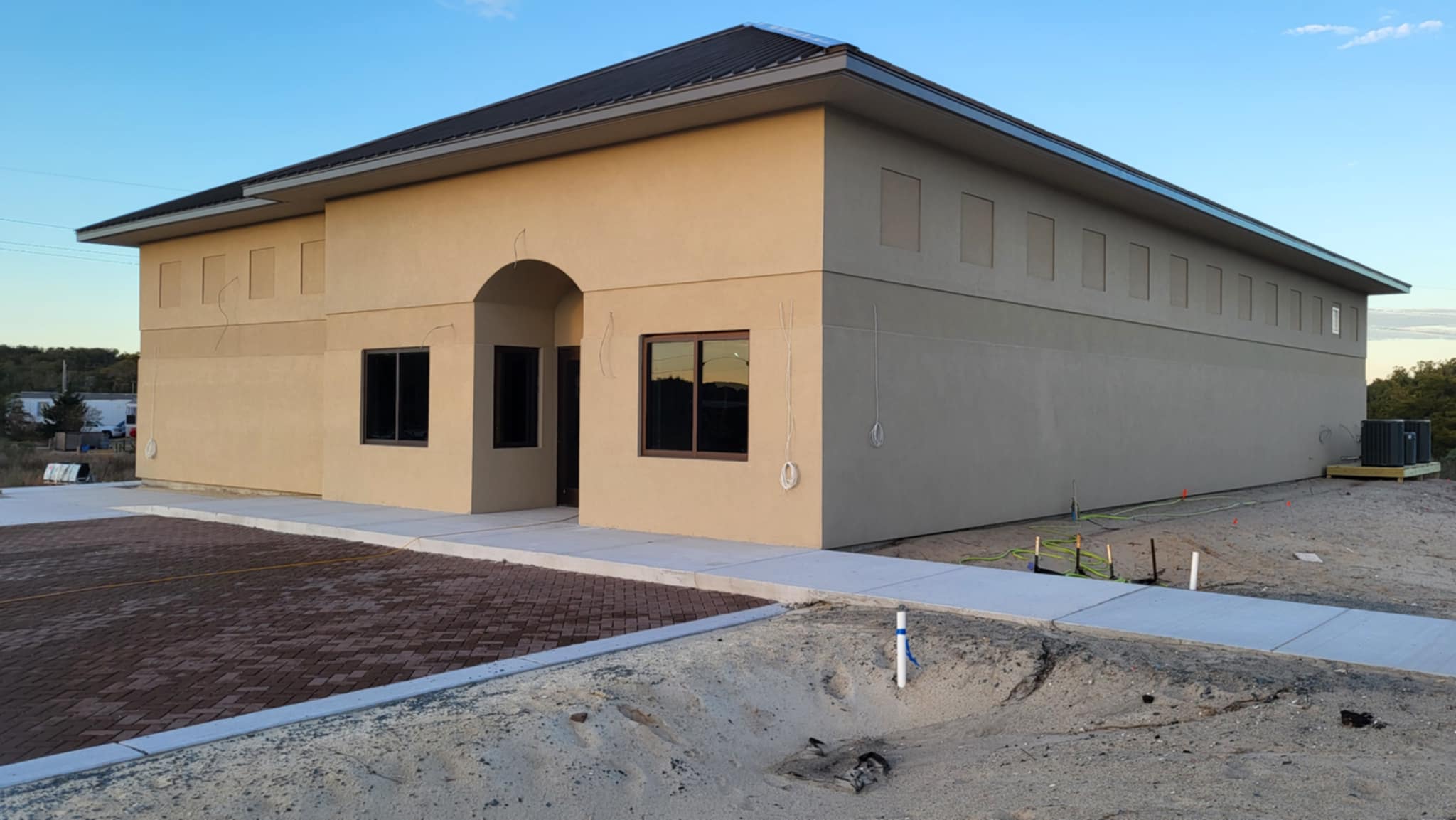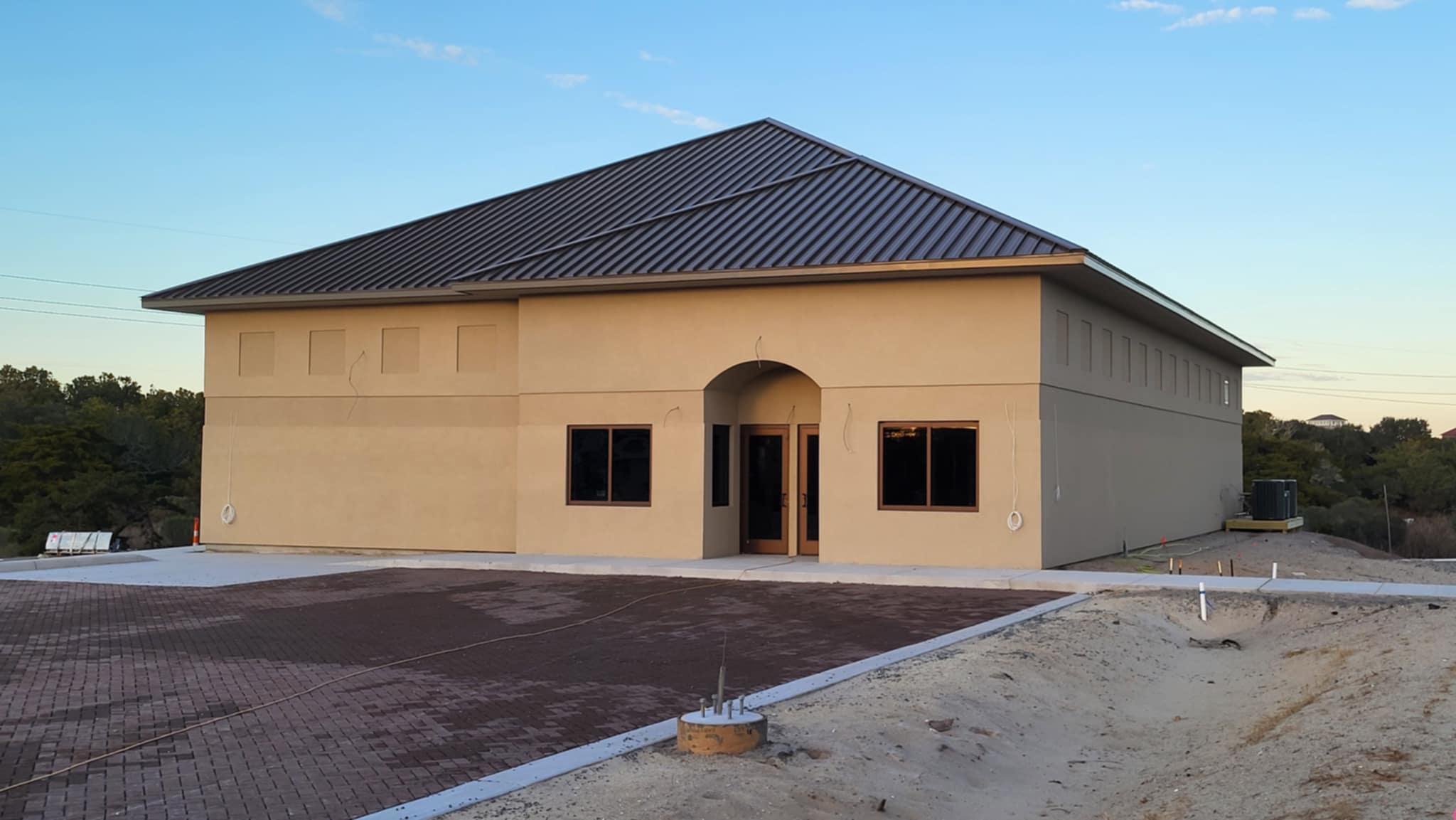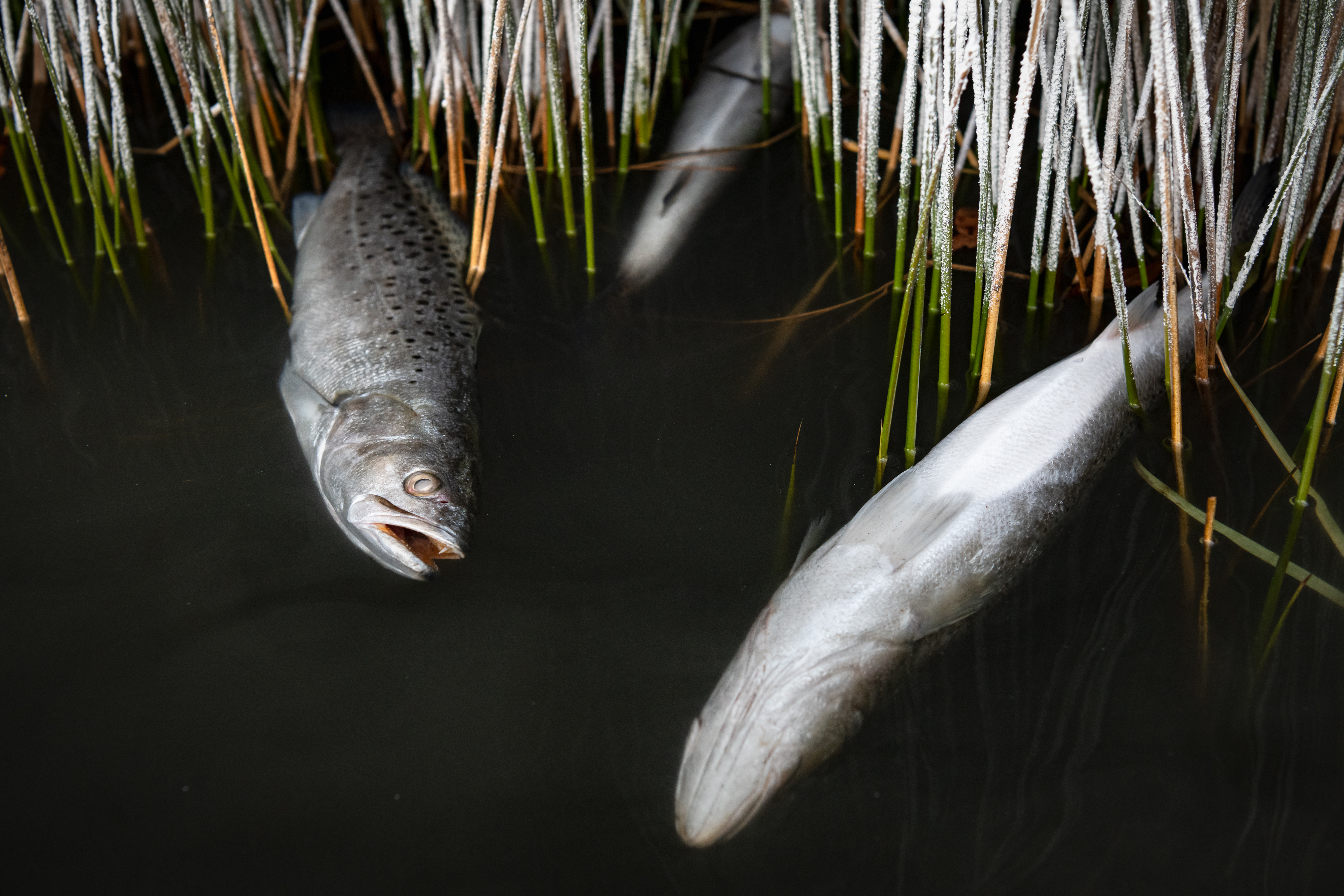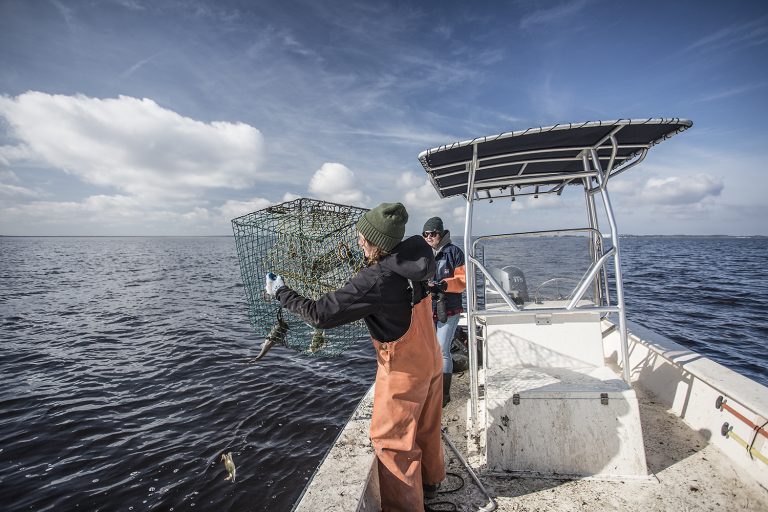A Fishing Trip to Remember
By JIM BREWER
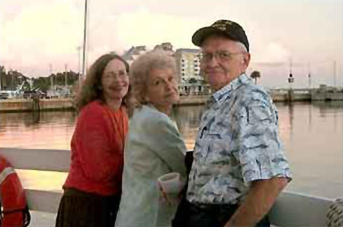
A stormy night and a dash over the Bonner Bridge – before it was finished
(Editor’s note: Ann Brewer Ianuario has been recording the memories of her parents for some time. This story involves a rather unusual and exciting trip that her father made to Hatteras Island in 1962 when the family was living in North Augusta, S.C. Her father is James Reese Brewer, Jr., who is 82 and a retired pharmacist. His mother was Mary Ruth Midgett Brewer, who was born at Buxton in 1902. Her mother is Wilma Langley Brewer.
“I recorded this story while sitting with Dad on his back porch in Florida,” Anne says, “while my husband and my mother watched an old cowboy movie in another room. By the time the movie was over, I had the fishing story, and Dad had begun to tell me his memories of Miss Rovene, island midwife. Mom joined us, and first thing I knew they were discussing home remedies they remembered from childhood. I was grinning.”)
JIM: In November, Dr. Donald McRae, who was a surgeon in Augusta, Ga., Mr. Tate Anderson, who was my sister’s father-in-law, and I used to go to Cape Hatteras to an international surfcasting tournament, fishing mainly for drum.
The first time I took them, they didn’t know what to expect. What they saw driving down to Buxton was pretty much wilderness. They thought it was the most isolated place they had ever seen. When we got to Buxton, I took them to Fate and Pearl’s (Midgett) house. Chesley (their son) had an organ in the living room, and when we got there, he was playing. He could play really well. Dr. McRae was in awe. Way off down here in this isolated place he walks in, and here is this young man playing classical music.
ANN: I would like to hear about the trip when the Bonner Bridge was brand new and not yet open.
JIM: Dr. McRae had to see patients in the morning the day we left and I had to work that morning, but Mr. Anderson went over to our house in North Augusta and started packing the car. Dr. McRae and myself rushed home as soon as we could get away. Wilma had fixed us some sandwiches for the trip. We hopped in the car and took off.
The reason for the hurry — it’s a long trip and the ferry that ran across the Oregon Inlet shut down at night. We had to get there in time for that ferry or else we would have to wait until morning, and if we were out at the ferry landing, there was no place to stay or eat or anything. We hurried all we could. We drove faster than we should have most of the trip. The latter part of it, it started to rain real hard, and the wind was blowing. When we got to the turn off the main road to go out to the landing, we had to decide. Are we going to stay here and eat supper and get a hotel room or are we going to try to make that ferry? We decided: Let’s make that ferry!
I was driving. The wind was blowing and the rain was so hard. I’ve never driven in that much wind. I drove as fast as the car would go. It turned dark, and the wind kept getting worse and the rain was worse and worse.
I figured we would know whether or not we missed the ferry because it would have unloaded, and we would meet cars coming off that ferry. There was no where else for them to go. So if we didn’t meet any cars, the ferry hadn’t gotten there yet. We pressed on and finally got up to the landing.
The Bonner Bridge was under construction — hadn’t been finished — was closed up. There was a trailer sitting over close to the base of the bridge, with a light on. We pulled over there. The wind was so hard we could hardly get the doors open on the car. We went up and knocked on the door, and this man, he was the supervisor I guess, of the bridge construction, opened it.
“Did we miss the last ferry?”
He said “What ferry? The ferry hasn’t run in two days. We’re having one of the worst storms down here we’ve ever had. We’re recording barometric pressure lower than we’ve ever recorded.”
Oh, my goodness. He told us there was a load of cars down here just now, and the sheriff came down and led them across the bridge. “I’ll let you on there and you ought to be able to catch them.”
A lot of the bridge had no railing and there was machinery everywhere. The wind was still blowing so hard it affected the steering of the car. No, really. We pressed on until we could see lights way up ahead. Finally we recognized it was the sheriff, and he was locking the gate back up, wrapping chains around it. I started flashing my lights. He saw us, and started unwrapping so he could let us off.
We made it by the skin of our teeth! We thought we were the luckiest guys. We went on three or four miles, and there was every one of the cars he had led across the bridge—there in the road. It was cold—this was late November– but we got out and walked up to where everybody was standing. The storm had driven the ocean right across the island. A big flatbed truck had tried to go on and had gotten out there about 100 yards and was stopped in the water. We started discussing it. I was getting cold, so I went back to the car to get a jacket.
When I got back to my car the water had come in behind it. I went back and said, “Look, it’s still coming up—it’s behind my car. Now we’re gonna have to find some higher ground. Let’s go back to the Coast Guard station, back there a little way. It’s on kinda higher ground, for this place.”
Low tide was supposed to be about daylight in the morning. We knew that was going to be the best it was gonna get for awhile. We all agreed to meet in the morning and go together back to the cut and see what had happened. I parked my car right next to a boat shed at the station and everybody else found a place wherever they could. We were about to starve. We had eaten up all the sandwiches and crackers and cookies we had.
All night long, the wind picked the car up into the springs. Not off the ground, but up into the springs and then turn it loose. BAM. BAM. All night long. You knew that just any minute the car would blow away. At daylight, we all got together and lined up single file and headed back down to where the water had come across. The truck was gone, but there was still water over the road. But you could open your car door and look down and see the white line. We all drove on, staying right on the white line. We got over and were okay for a good ways.
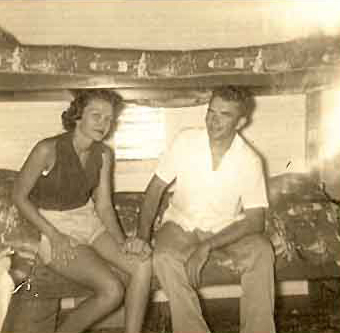
As we went on down the island cars kept dropping off at the little villages along the way until we were down to two cars. We got shortly out of Avon, and the ocean had cut across the road there. A school bus was on the other side, and some people were wading around in the knee-deep water trying to decide what to do. We talked to the guy in the other car and decided to get bumper to bumper and take off and hit that water. We backed up, and I got right on his bumper pushing him and we hit the water as fast as we could. His car went dead right away but I floored it and pushed him out on the other side. We dried his car and got it going. Turned out he was renting a house from Chesley Midgett.
We were so hungry. We wanted something to eat! The first restaurant was right around the first curve. We pulled up and it wasn’t open yet. There wasn’t any sign about when it would open. Somebody told us there was another restaurant on down in Buxton that would probably be open so we went there, and there was a car parked outside. It was one of the waitresses. We asked her, “When does he open?” She said, “Whenever he gets here. He’s not very punctual.”
We found out the other one was supposed to open in about five minutes. We turned and went back to that one, and shortly they opened. We really ate some food, let me tell you.
Hearing stories now that the bridge is almost worn out in my lifetime—it reminds you how temporary everything is in this world.
ANN: How did the fishing tournament go that year of the storm?
JIM: Well of course we always stayed at the Orange Blossom Inn. We had two bedrooms and a kitchen and a sitting room. There was always a fish cleaning table outside.
It was always bitterly cold out on the beach. We really bundled up. One day we’d been fishing all day but had not caught much in the way of drum. One of us hooked a shark about 3 or 4 feet and threw it up on the beach. We went on fishing, but it was getting dark, and we decided we weren’t gonna do any good so we would go on back to the motel. Dr. McRae suggested we cut the shark up and feed it to the cats. There was a whole bunch of cats that lived near the fish cleaning table. And they hadn’t had much to eat because nobody was catching much. They sent me to get the shark—about 50 feet from where we were. I got it by the tail and started pulling it and there was a baby shark on the sand. Dr. McRae came over and performed a C-section. There were about a dozen little sharks. Those rascals snapped at you. Clack, clack. We took them to the cats too.
The next day we had a little luck fishing. It was a better day. We wore armpit waders. Dr. McRae hooked the fish of his life. He was a lifetime fisherman. He kept a diary of every fishing trip he had ever been on. He hooked this big old drum — 50-55 pounds. He fought it for a long time, over an hour, maybe two hours. Finally he worked it in where you could see it in the breakers. At last a breaker swept it up on the beach. He called to me, “Gaff him Jim!” I grabbed a gaff and ran down there and just before I gaffed him the line went around my leg, and he got off. But I sunk the gaff into him.
About the time I got the gaff in, a huge wave broke right over my head. I was under water. I held to the strap on the gaff. I had 50 pounds of fish dragging me out to sea. I had him but I thought I was going to drown because I was under water. Finally the waves pulled back, and I got a big breath of air. Then another wave hit. My waders filled up with water and I couldn’t move! I kept clawing and clawing until I got on the beach where I could lie head toward the water and let those waders drain. By that time the fish was gone, the gaff was gone, and my glasses were gone. I looked up the beach. Dr. McRae had thrown his rod and reel down in the sand and was sitting there with his head between his knees. He couldn’t care less if I was drowned.
On another one of those slow days, we went down to a pier on the beach. Everybody on the pier was catching puffer fish and were just throwing them into piles. They were ankle deep all over the pier. People fishing with two hooks were catching two at a time. We thought it was such a waste.
Mr. Anderson said, “Oh they’re good. We can eat those.” Dr. McRae and myself, we had heard they were poisonous, that you can’t eat them.
Tate said, “Oh, you can if you know how to do it.” He got a sack and picked up as many as the sack would hold. We took it back to the motel, and Mr. Anderson cleaned them. He told us the only way to clean them was not to gut them or anything. Take a knife and cut down each side of the dorsal fin. There is row of meat about the size of your little finger. Cut that out and throw away the rest of the fish. The poison is down in the intestines and abdominal cavity. As long as you cut just along the top, pop that out, and throw the rest away, you’re okay.
Well, he filled up a skillet with those things, a big skillet, put some butter in there, and fried them. They were delicious. One of the best tasting meats I’ve ever eaten. I wouldn’t eat it if I didn’t have someone who knew what they were doing to clean them.
We went several years. We always enjoyed it. Did a lot of kidding. Mr. Anderson was older than either one of us, and his wife had been dead quite awhile. Dr. McRae used to kid him about girlfriends. Tate really wasn’t the type of man that joked much, but we all enjoyed the camaraderie that we had.


